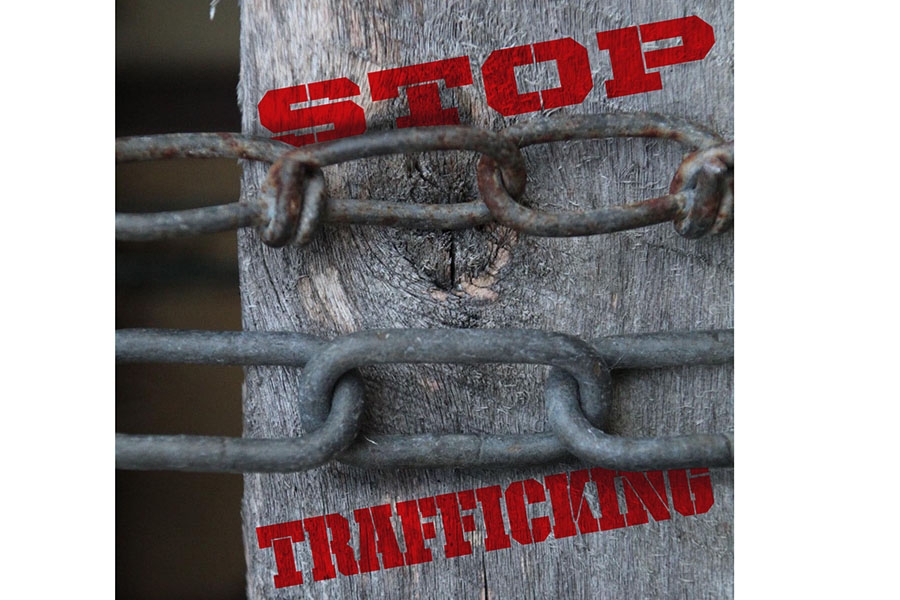Why businesses should be concerned about human trafficking and sex trafficking in their organizations.
Human trafficking and sex trafficking are prolific and yet, in many cases, businesses do not believe there is an issue or that it affects their company.
We have seen differently. Prevention by an employer can protect victims and hold offenders accountable. It protects businesses’ reputation, work production, work environment and possibly customer retention, including subcontractors.
It also can protect your company from civil or criminal charges. In sum, addressing human trafficking and sex trafficking is a good business decision.
Sex trafficking includes commercial sex acts viewed as prostitution or pornography. Traffickers use force, fraud or coercion. Victims can be adults or minors who exchange a sex act for something of value, such as money, food, clothing and drugs.
Sex buyers, also known as “johns,” fund sex trafficking and, in many instances, believe that the people they have bought have chosen this life and are willing participants. In reality, they are modern-day slaves to their traffickers. Trafficking is not a victimless crime.
Human trafficking, also known as labor trafficking, may be in the form of food-service workers, domestic help, field workers, nannies, home-health aides and construction workers, in addition to sex trafficking.
Taking a stand against human trafficking and sex trafficking is a moral and ethical decision. If one of your employees, particularly someone in a position of authority, were to be caught buying sex, it would reflect poorly on your company.
That is doubly true if the victim is a child. Labor and sexual abuse affect your brand, you and your business.
How can businesses address the issue? Through educating your staff and having written employment policies addressing the realities and negative effects of trafficking.
Research shows that a peak time for buyers going online to purchase sex is between 11 a.m. and 2 p.m. This shocking realization means that buyers are purchasing sex at work and in the middle of the workday during business hours.
Given the large number of buyers and daily solicitations, no employer is immune to this problem. Prostitution acts are carried out in vehicles, in parking lots, inside businesses, in condos, in apartments, at truck stops, in hotels. Because of this, your company website, credit cards, bank accounts or other company property may be at risk.
 Author Dana Clark. Photo by Jason E. Kaplan
Author Dana Clark. Photo by Jason E. Kaplan
Throughout the nation and this community, there have been employees, managers and executives of large corporations who have been part of law-enforcement stings. They could be your co-workers, employees, distributors, buyers, subcontractors or other individuals associated with your business.
Pornography has been found to be a gateway for victims to enter trafficking and for buyers to purchase sex. Employees may be accessing pornography sites on your equipment and on your time.
Employers should block access to websites where sexual services are sold and monitor if employee activity takes place on these sites.
Trafficking largely happens on websites that are hosted domestically and internationally. It is a $32 billion business worldwide.
It is critical to train your entire workforce, educating them on what constitutes trafficking and what your policy is regarding buyers. It is also critical to provide your staff with the reason for your new policy. It is important to teach employees the signs of trafficking and how to report suspected activity.
Policies can be developed that address all activities that are prohibited in your business. Larger companies may want to break policies down further. You want to prohibit employees from using company time, resources and facilities to solicit prostitution.
It is best to consult your human resources and/or your company attorney to develop policies that fit your corporate culture. Policies should clarify the discipline process and the responsibility of managers who fail to report known activity.
Also, consider employees who may participate in any bonus program. Review contracts between your company and independent contractors and subcontractors to make sure they address this issue.
Bottom line: You want to emphasize it is against company policy, is inconsistent with what the company stands for and will not be tolerated.
No buyers, no victims.
Dana Clark is a retired human resources professional. She leads the Rotary Club of East Portland’s End the Demand initiative, a campaign to prevent human and sex trafficking.
To subscribe to Oregon Business, click here.






